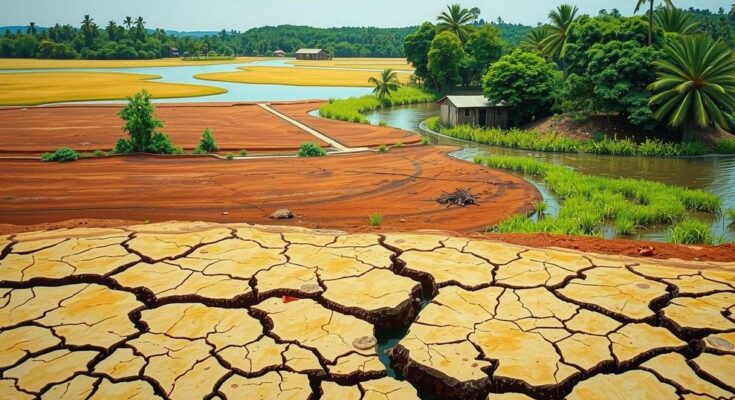Indigenous migrants in northern Colombia, especially the Wayuu, are facing increasing challenges due to severe weather changes, including droughts and floods. Many have fled Venezuela, now living in informal settlements without basic amenities. The cultural ties of the Wayuu transcend national borders, reflecting their need for support in these difficult times.
In Maicao, Colombia, Indigenous migrants, particularly the Wayuu, are grappling with severe challenges posed by worsening droughts and floods. Nelly Mengual, a resident who lives in a makeshift home, recounts the impact of a recent storm that destroyed her roof, leaving her home inundated. The Wayuu population, many of whom fled from Venezuela due to economic difficulties, reside in informal settlements devoid of fundamental amenities such as running water and electricity.
The Wayuu people possess a unique cultural identity that transcends national borders, viewing the delineation between Colombia and Venezuela as merely political. With their traditional lands straddling both countries, their profound connections are grounded in shared heritage rather than geographic boundaries. This community faces disproportionately severe hardships as they navigate life in these precarious living conditions and seek ways to survive.
In their struggles, residents like Mengual adapt by recycling scrap material to make ends meet. As climate conditions worsen, the intersection of environmental factors and migration continues to exacerbate the already critical situation faced by Indigenous communities in Colombia. The increasing frequency of extreme weather events highlights the urgent need for supportive measures to assist these populations in overcoming such adversities.
The plight of the Wayuu Indigenous migrants in Colombia showcases the intersection of climate change and migration, as they contend with devastating floods and droughts. Their resilience in face of hardship, coupled with their unique cultural identity, underscores the urgent need for targeted support and resources to help them navigate their precarious living situations. Understanding their struggles is vital to addressing the broader implications of climate impact on Indigenous communities.
Original Source: subscriber.politicopro.com




